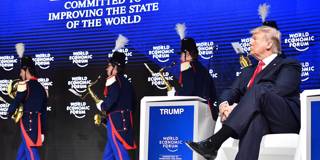The Trump administration's unilateral approach to trade and foreign adversaries like Iran is reminiscent of the Reagan administration's strategy against the Soviet Union. Both game theory and the historical record show that aggressive "non-cooperation" can be effective, but only if it is used carefully.
NEWPORT BEACH – US President Donald Trump’s authorization of the targeted killing of Iranian Quds Force commander Qassem Suleimani is, in many ways, similar to his administration’s approach to trade. In both cases, the administration has demonstrated a willingness to surprise by unilaterally leveraging US strength in the pursuit of long-term outcomes, despite considerable short-term risks and without wide consultations. As President Ronald Reagan showed in the 1980s with his strategy vis-à-vis the Soviet Union, such aggressive unilateralism can work. But it is best used selectively and sparingly.

NEWPORT BEACH – US President Donald Trump’s authorization of the targeted killing of Iranian Quds Force commander Qassem Suleimani is, in many ways, similar to his administration’s approach to trade. In both cases, the administration has demonstrated a willingness to surprise by unilaterally leveraging US strength in the pursuit of long-term outcomes, despite considerable short-term risks and without wide consultations. As President Ronald Reagan showed in the 1980s with his strategy vis-à-vis the Soviet Union, such aggressive unilateralism can work. But it is best used selectively and sparingly.